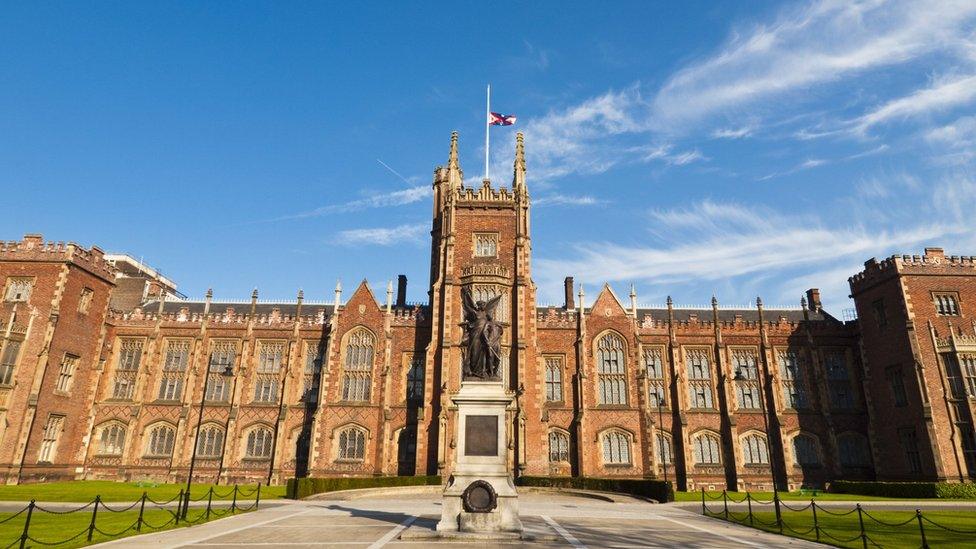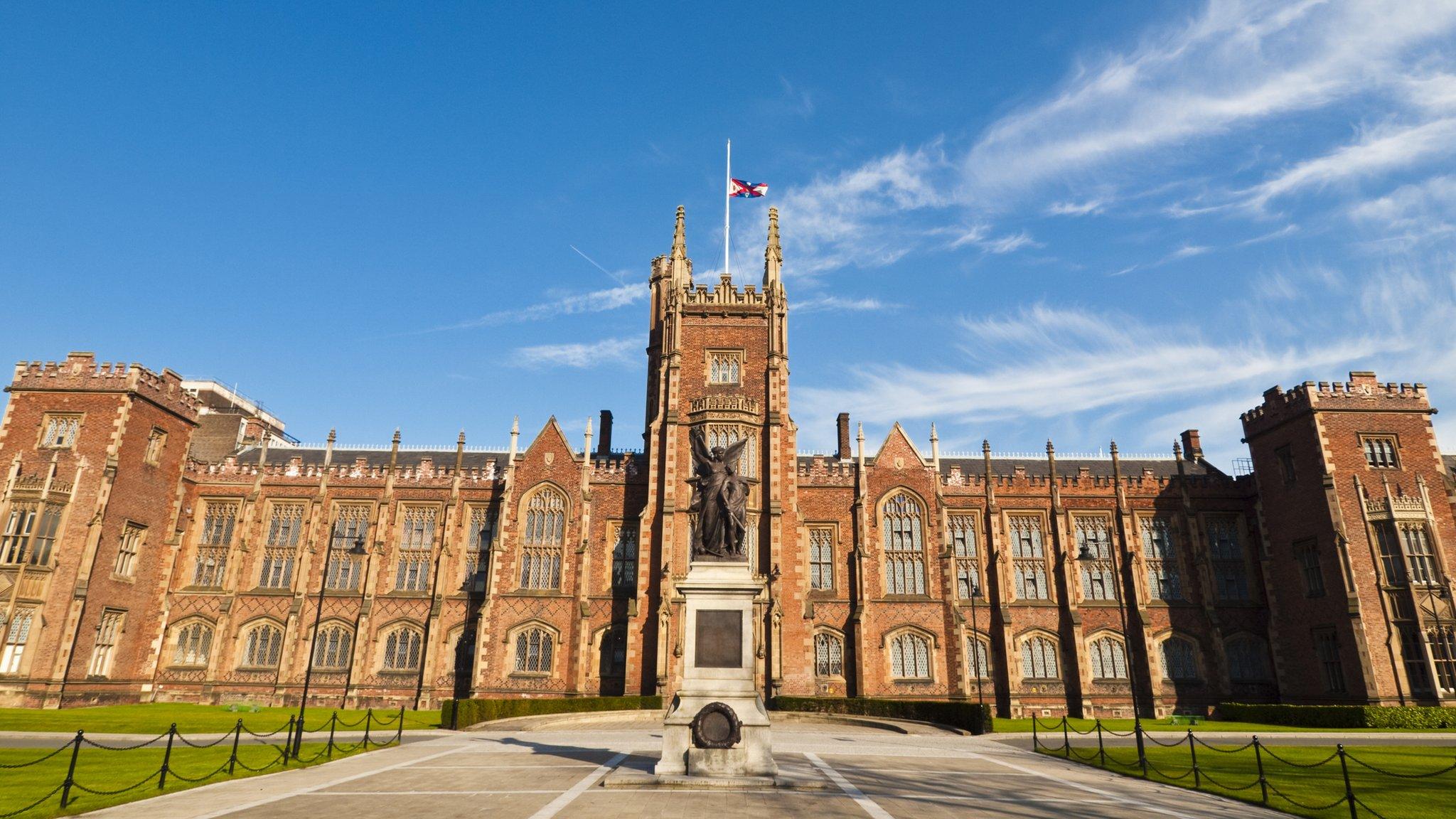Cost of living: Northern Ireland student loans to rise by 40%
- Published
- comments

Northern Ireland's economy minister has announced a 40% increase in student maintenance loans from 2023.
The increase will provide students with approximately £55m extra to help with living costs.
Loans vary according to circumstances but the rise means support available for students living away from home will rise from £4,840 to £6,776.
Gordon Lyons said his department would also undertake a full review of the higher education funding system.
This will include the support provided to students such as maintenance loans and grants and the support provided to the sector including teaching grant and fees.
The minister has also confirmed an uplift of 1.8% to tuition fees and tuition fee loan products.
Mr Lyons said he was "acutely aware of the difficulties that continue to be faced in the current cost-of-living crisis by people right across society, and not least by students".
He added that the loans would be available to approximately 40,500 NI-domiciled students studying in the UK and Republic of Ireland.
"This includes increases to the limits for those who live at home, away from home, and those in London, where costs are generally even higher.
"Eligible students can also continue to avail of income-assessed maintenance grant support of up to £3,475, and other targeted support provided by the department, such as Disabled Students Allowance."

What the rises mean
The maximum maintenance loan support to full time undergraduate NI-domiciled students will increase:
for students living at home from £3,475 to £5,250
for students living away from home from £4,840 to £6,776
for students living in London from £6,780 to £9,492
SOURCE: Department for the Economy

News of the rise in funding comes after Queen's University Belfast (QUB) declared a "critical incident" due to the cost-of-living crisis.
Queen's has been allocated £2.7m to be distributed as hardship funds this academic year as part of a wider support package.

Queen's University will spend about £8m making extra cost-of-living payments
This package of £5.6m is administered by the five higher-education institutions in Northern Ireland on behalf of the Department for the Economy (DfE).
Mr Lyons said he had pressed institutions to "apply as much flexibility as possible when dealing with applications from students for hardship funds".
He said it was also appropriate to take a long-term look at how higher education is funded in Northern Ireland.
He said the review announced on Wednesday would ensure that students had the support needed for higher education study, and that the sector was "put on a more sustainable financial footing".
Related topics
- Published6 March 2022

- Published7 October 2022
